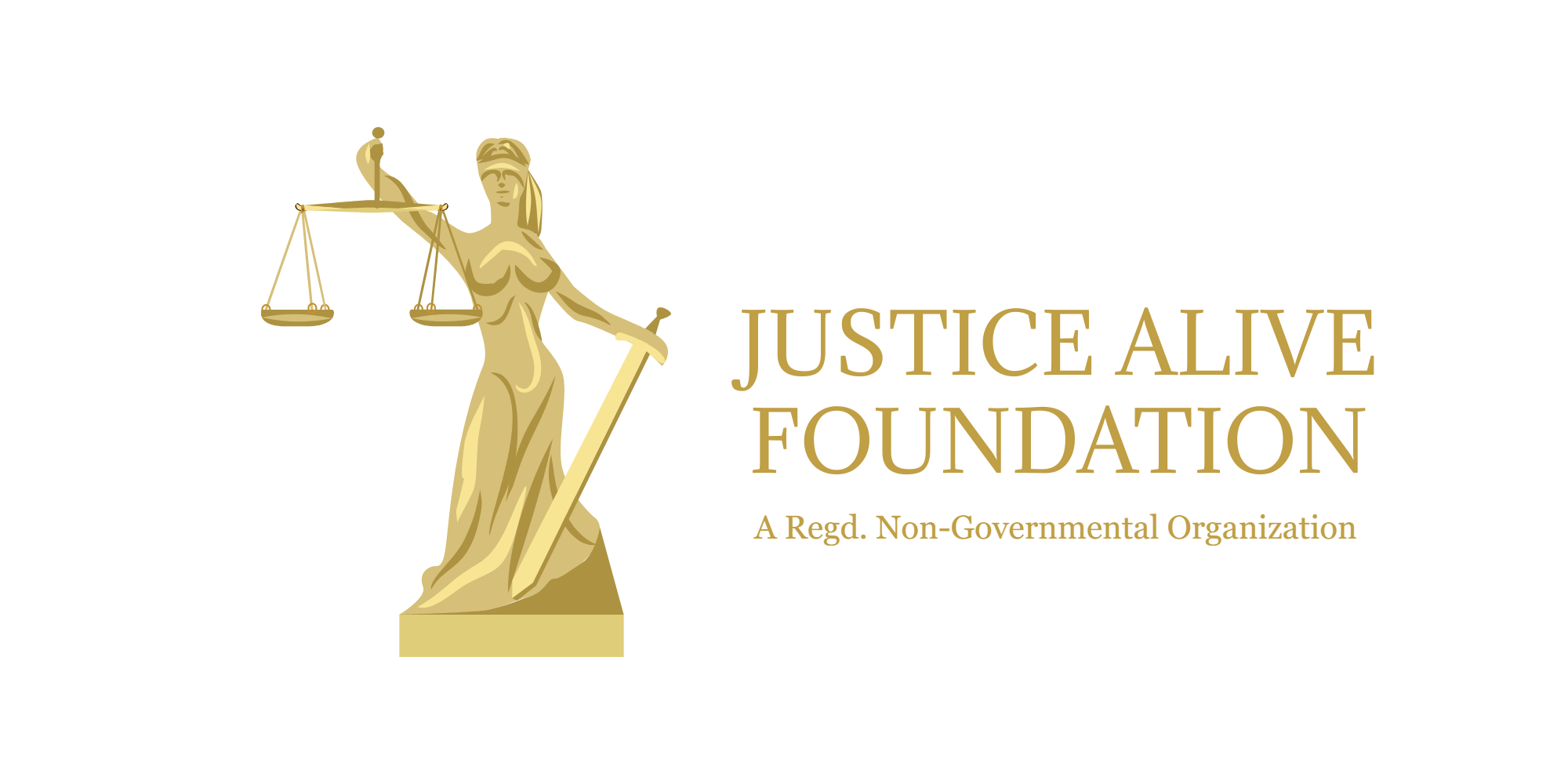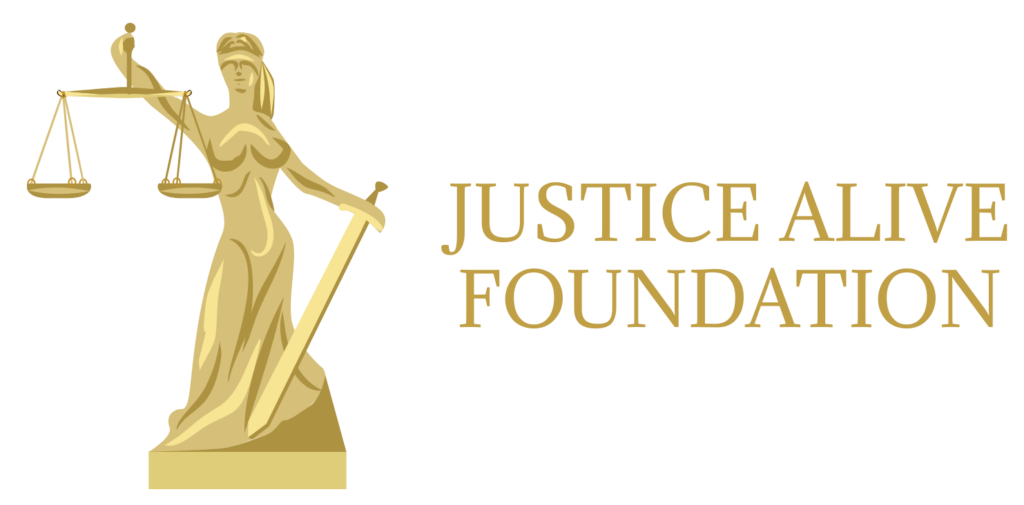
How can an Under-Trial Prisoner get released from the Jail? Role of Legal Aid
This article has been written by Ms. Abhiruchi Kumari.
INTRODUCTION
A democratic society’s criminal justice system is essential to safeguarding the values of justice and fairness while preserving law and order. The way in which under-trial prisoners—those who have been charged with crimes but have not yet been found guilty—are treated is a vital component of this system. The personal liberty, public image, and general well-being of those who are imprisoned before trial are all seriously impacted by their confinement. Because of this, it is crucial to understand the legal processes required to free prisoners awaiting trial as well as the crucial role legal aid plays in ensuring these people receive fair counsel and access to justice.
It is important to recognize the hardship of inmates awaiting trial since they frequently find themselves in precarious situations and are ill-equipped to deal with the complexities of the legal system. Many of them come from underprivileged and economically marginalized homes, which makes it even harder for them to pursue justice. The fundamental tenets of the criminal justice system can be undermined by the extended detention of offenders awaiting trial. It is necessary to clarify the methods for obtaining their release as well as the crucial part legal aid organizations play in this procedure.
Legal aid is the term used to describe the free legal assistance given to anyone who cannot afford legal representation. Any just and equitable legal system must include it as a cornerstone if it is to level the playing field and sustain the notion of equality before the law. Access to legal assistance can be a lifeline for prisoners awaiting trial, giving them the opportunity to fairly defend themselves against the charges leveled against them.
Understanding the judicial processes involved in a prisoner’s custody is the first step towards securing their release. An individual who has been arrested must be made aware of the circumstances surrounding their arrest as well as their legal rights. In many jurisdictions, the law also specifies a deadline by which the police must bring the person they have detained before a magistrate. The charges against the defendant are legally laid out in front of the magistrate during this initial appearance, and the court then determines whether to grant bail or detain the defendant in custody.
Bail acts as a short-term release from custody, enabling the accused to stay out of jail until their court appearance or until the charges are dropped. To ensure that the accused does not flee or obstruct the inquiry, bail is, nevertheless, subject to a number of requirements. These prerequisites could be the payment of a bond, the presentation of a passport, ongoing police reporting, or a surety guarantee.
For convicts awaiting trial, the process of getting bail can be difficult and intimidating, especially if they don’t have an attorney. Legal aid organizations can be useful in this situation. Legal aid attorneys and paralegals are qualified to assist prisoners awaiting trial through the bail procedure, ensuring that their rights are upheld and that they have an equal opportunity to get their release.
Additionally, legal aid goes beyond bail requests. It includes every stage of the legal process, from gathering proof and putting together a defense to defending the accused in court. Regardless of their client’s financial situation, legal aid attorneys work hard to guarantee that their client’s rights are protected and that they have a fair trial.
Legal aid organizations frequently participate in advocacy and awareness campaigns to advocate the rights of detainees awaiting trial and address systemic problems with the criminal justice system in addition to providing courtroom representation. They are essential in pushing for changes that might result in trials that are quicker and more fair, lessen the load of detainees awaiting trial in jails, and enhance overall access to justice.
In conclusion, the release of inmates awaiting trial is a crucial component of the criminal justice system, and ensuring a fair and equitable process requires a thorough understanding of the legal processes involved. It is impossible to overestimate the importance of legal assistance in this situation since it serves as an essential link between the disadvantaged and the justice they deserve. Legal aid organizations work to uphold the values of justice, equality, and human rights by offering free legal counsel to prisoners awaiting trial. By doing so, they have a significant positive impact on the lives of people caught in the criminal justice system’s web. We will examine the many legal options available for the release of inmates awaiting trial as we learn more about the subject and the transformative power of legal aid in securing justice for the most vulnerable members of society.
DEFINITION AND CONTEXT
Similar to many other legal systems, the Indian criminal justice system operates under the tenet of “innocent until proven guilty.” A person who is incarcerated while awaiting trial or through a trial but has not yet received a conviction for a crime is referred to as an under-trial prisoner. India, regrettably, has been struggling with the issue of overcrowded prisons and a sizable number of offenders awaiting trial. In this essay, we shall define an under-trial prisoner, examine the state of under-trial inmates in India today, and analyze the steps that can be taken to ensure their release, with a focus on the crucial function of legal assistance.
An individual who has been charged with a crime and is now being held in custody while they await trial or the outcome of an ongoing trial is known as an under-trial prisoner. Detaining inmates who are awaiting trial is intended to assure their participation in the proceedings and stop them from fleeing the justice system. However, a significant issue in India is the protracted detention of inmates who are awaiting trial without a prompt and impartial trial.
According to the most recent knowledge update in September 2021, India’s condition with regard to inmates awaiting trial was worrying. According to reports, convicts awaiting trial make up more than two-thirds of the prison population in the nation. Many of these people come from underprivileged families and lack access to competent legal counsel, which results in drawn-out detentions and complicated legal procedures.
The Release of Under-Trial Prisoners
A prisoner who is awaiting trial has a number of options for getting out of jail. These consist of:
Bail: The provisional release of a detained person pending trial while they are still in custody. It is issued in order to make sure that the defendant cooperates with the court proceedings and does not tamper with the evidence or the testimony of others. Both personal recognizance and surety or bail bonds may be used to secure release on bail. However, the judge has the last say on whether to issue bail, and a number of criteria are taken into account, including the nature of the crime, the possibility that the accused will run away, and any potential threats to witnesses.
Legal Representation: For inmates who are awaiting trial, especially those who cannot afford private counsel, access to legal aid is essential. The right to free legal representation is recognized by the Indian legal system and is guaranteed by Article 39A of the Constitution, which makes sure that no citizen is denied access to justice because of financial limitations. Legal aid is offered to impoverished people, including convicts awaiting trial, through several legal services agencies in accordance with the Legal Services Agencies Act of 1987.
Fast-Track Courts: India has established fast-track courts to address the issue of delayed justice and lessen the weight of outstanding litigation. These courts strive to quickly resolve matters and accelerate the trials of inmates who are awaiting trial. Fast-track courts are essential for guaranteeing prompt justice, which helps to lower the number of convicts awaiting trial.
Plea Bargaining: Prisoners awaiting trial may choose to enter into a plea agreement in some circumstances if the offense is not particularly serious. Through plea negotiations, the defendant might accept responsibility in exchange for a lighter sentence. The accused may be released earlier as a result of this process, which can speed up the trial.
Role of Legal Aid
A crucial factor in gaining the release of convicts awaiting trial is legal aid. Many people who end themselves as prisoners awaiting trial are unaware of their legal rights and the steps necessary to get bail or mount a court defense. They have access to skilled solicitors who can effectively represent them thanks to legal aid. Legal aid attorneys support the accused in navigating the complexities of the legal system, understanding the charges against them, and putting together a strong defense.
Additionally, legal help goes beyond legal representation in court. Additionally, it involves implementing legal education initiatives in jails to inform detainees about their rights and choices for release. Legal aid attorneys can collaborate with the court system to pinpoint cases where bail should be taken into account, fight for just trial dates, and promote communication between detainees and their families.
India’s predicament with regard to inmates who are awaiting trial demands immediate attention and action. In addition to respecting their fundamental rights, early release of qualified under-trial detainees is necessary to ease the strain on overcrowded jails. In order to guarantee that convicts who are awaiting trial have fair and prompt trials, legal aid is essential. Legal assistance enables prisoners awaiting trial to successfully navigate the legal system and request their release in a fair and timely way by giving them access to legal representation and legal education. To expand the legal aid infrastructure and address the systemic issues of under-trial detainees in India, the government must work in tandem with numerous legal services agencies and non-governmental organizations. Only by making such coordinated efforts will the nation be able to guarantee a more democratic and efficient criminal justice system.
LEGAL RIGHTS OF UNDER-TRIAL PRISONERS
Prisoners under trial are those who are either awaiting trial or have not yet received a conviction. Despite being presumed innocent until proven guilty, these people frequently endure lengthy incarceration and are deprived of their basic rights. There are certain legislative protections in place to safeguard the rights of inmates who are awaiting trial. This article seeks to examine the basic liberties accorded to detainees awaiting trial, including the right to a fast and fair trial, the assumption of innocence, and the privilege against self-incrimination. The significance of legal aid in obtaining the release of detainees awaiting trial will also be emphasized.
- Fundamental Rights of Prisoners Undergoing Trial:
- Right to a Fair and Speedy Trial: Everyone in India is guaranteed the right to life and personal freedom under Article 21 of the Indian Constitution. The right to a fair and expeditious trial has been construed by the Supreme Court of India to be a part of this right. By doing this, it is certain that convicts awaiting trial won’t be held without charge or trial indefinitely and that their cases will be resolved quickly.
- Presumption of Innocence: The legal maxim “innocent until proven guilty” is a cornerstone of criminal law. Everyone accused of committing a crime is deemed innocent until and unless proven guilty in accordance with the law, as stated in Articles 11(1) of the Universal Declaration of Human Rights and Article 14(2) of the International Covenant on Civil and Political Rights. This safeguard makes sure that inmates who are awaiting trial are not treated like guilty people before their case is over.
- Protection from Self-Incrimination: Article 20(3) of the Indian Constitution states that no one accused of a crime may be forced to testify against them. This privilege prevents convicts who are awaiting trial from being coerced into testifying against them during the inquiry or trial.
- Role of Legal Aid:
- Right to Legal Representation: Every under-trial prisoner has the right to be represented by a lawyer of their choice. The state is required to offer people legal help if they are unable to pay for legal representation. India’s Legal Services Authorities Act of 1987 provides eligible convicts awaiting trial with free legal representation.
- Legal Aid Counsel: In order to protect the rights of prisoners awaiting trial, legal aid counsel is essential. They support the preparation of the accused’s defense, aid in understanding their legal alternatives, and make sure their rights are upheld during the course of the trial.
- Bail petitions: Legal aid attorneys assist detainees awaiting trial with submitting bail petitions to the proper courts. The temporary release of an accused individual before trial under the terms of bail helps avoid needless pre-trial imprisonment.
RECENT LEGAL DEVELOPMENTS AND LANDMARK CASES
Significant legal advancements in recent years have helped to preserve the rights of prisoners awaiting trial. Several significant cases have clarified the situation:
“Hussainara Khatoon v. State of Bihar”[1]: The predicament of convicts who were awaiting trial and had spent years behind bars without a trial was brought to light by this historic case in India. The Supreme Court mandated the release of numerous convicts awaiting trial who had been jailed for an extended period of time after ruling that the right to a quick trial constituted a basic right.
“Justice K.S. Puttaswamy v. Union of India”[2]: The Indian Constitution’s fundamental guarantee of the right to privacy was upheld in this seminal case, which also upheld the rights and dignity of inmates who were awaiting trial.
In order to preserve their dignity and guarantee that justice is done, inmates who are awaiting trial must be informed of their legal rights. These rights must include the presumption of innocence, the right to a timely and fair trial, and the privilege against self-incrimination. In order to secure their release from custody, prisoners awaiting trial rely heavily on legal aid. It makes sure that persons without access to legal representation are not denied their rights or a fair trial. Recent legal advancements and significant cases have improved the status of inmates awaiting trial in the justice system, fostering a more just and equitable society.
BAIL AND BOND: UNDER- TRIAL PRISONERS
An essential part of ensuring that the rules of justice are respected is getting a prisoner who is awaiting trial released. Bail and bond are one of the main methods for attaining this. Bail is the temporary release of a defendant pending trial on the understanding that they would appear in court for all scheduled hearings. Contrarily, a bond entails giving the court a financial guarantee in exchange for the accused’s promise to attend at the trial; if they don’t, the bond may be forfeited.
When someone is detained and accused of a crime, they are imprisoned pending trial until the outcome of their case. Since the accused is presumed innocent unless proven guilty, bail prevents excessive detention prior to the trial. However, bail is not always granted, and its availability may change based on the seriousness of the alleged offense, the accused’s prior criminal history, and the likelihood that the accused may flee.
The laws and regulations of the jurisdiction are typically what determine the qualifications and steps for granting bail. The nature of the offense, the potential sentence, the evidence against the accused, their relationships to the community, their job situation, their prior criminal history, and their propensity to tamper with the evidence or intimidate witnesses are just a few of the considerations the court typically takes into account. The court seeks to strike a balance between preserving the accused’s right to privacy and making sure they don’t represent a danger to the public or elude justice.
Bail can be difficult to acquire for convicts who are awaiting trial and do not have the necessary money or legal expertise. Here, the importance of legal help becomes clear. Those who cannot afford legal representation are given it through legal aid. Legal aid attorneys help pre-trial detainees create a sound bail application, make persuasive court arguments, and ensure that their rights are upheld throughout the bail hearing process.
Legal aid attorneys are skilled in navigating the complexity of the judicial system and are knowledgeable about the specifics of bail legislation. They make certain that the court is given access to all pertinent facts, emphasizing the defendant’s ties to the community, absence of flight risk, and any potential holes in the prosecution’s case. Legal aid is essential in preventing arbitrary and protracted incarceration, defending the rights of the accused, and advancing a fair and effective judicial system since it provides qualified legal representation.
In conclusion, bail and bond are crucial tools that enable convicts who are awaiting trial to gain their release. To secure both the accused’s appearance in court and the protection of the public, the court carefully evaluates a number of issues before granting bail. However, obtaining bail can be challenging for those who cannot afford legal counsel. In order to fill this gap, legal aid comes in, offering essential assistance to inmates awaiting trial in the preparation of their bail applications and ensuring a just shot at freedom throughout the trial process. Legal aid is essential in defending the rights of the accused and maintaining the integrity of the justice system by respecting the ideals of justice and guaranteeing equal access to legal representation.
LEGAL AID AND THE ROLE OF LEGAL AID ORGANIZATIONS
A fundamental human right, access to justice is especially important for those detained while awaiting trial who have not yet been found guilty of a crime. Under-trial inmates sometimes face financial hardship and are unable to hire private legal counsel, which results in their protracted detention without a fair trial. In order to give these people a fair opportunity at justice and a prompt release from prison, legal aid organizations play a crucial role in providing free or heavily discounted legal services.
Important Role of Legal Aid in Ensuring Access to Justice
One of the fundamental elements of a proper justice system is the right to legal counsel. However, a large number of convicts awaiting trial are unable to afford effective legal representation. Legal assistance becomes essential in these circumstances since it makes sure that these people are not denied their rights because of their financial situation alone.
Legal aid services equip inmates awaiting trial with knowledgeable solicitors who can effectively represent them in court. These attorneys can examine their cases, acquire proof, and make strong arguments to get their clients out of jail. Without legal representation, convicts awaiting trial might be obliged to represent themselves, which could result in unfair verdicts and lengthy confinement.
Role of Legal Aid Organizations in Releasing Underprivileged Under-Trial Prisoners:
For prisoners awaiting trial, legal aid organizations are vital in closing the justice gap. These organizations are primarily non-profit businesses dedicated to helping people who cannot afford private legal counsel.
First, legal aid organizations do outreach programs to find disadvantaged prisoners awaiting trial who need help. To evaluate the cases and identify which convicts qualify for their services, they work along with prisons and legal authorities.
Second, legal aid attorneys put in a lot of effort to create a solid defense for the detainees who are awaiting trial. They look into the allegations, compile information, speak with witnesses, and get ready for court appearances. This thorough approach increases the possibility that the prisoner will be freed and helps to ensure a fair trial.
Thirdly, organizations that provide legal assistance actively promote legislative changes and policy adjustments to address systemic problems that result in unjustified detentions. By reducing the number of convicts awaiting trial and enhancing access to justice for everybody, they help to improve the judicial system overall.
As a conclusion, legal aid organizations are crucial in ensuring that inmates awaiting trial have access to justice, which is a fundamental right. Legal aid organizations give economically disadvantaged people the counsel they need to secure their release from prison by offering free or discounted legal services to them. Legal aid organizations support systemic changes in order to make society more just and equal, in addition to assisting people. Legal aid organizations work to close this gap, advancing equality and the rule of law. In a fair and just legal system, no one should be left behind purely because of their financial circumstances.
CHALLENGES AND LIMITATIONS
An essential component of any democratic society is the right to a fair trial, which ensures that justice is respected and that innocent people are not unjustly imprisoned. In this situation, legal aid organizations are essential in giving representation to under-trial inmates, or people detained for trial. However, these organizations face several obstacles in their attempts to quickly gain the release of convicts who are awaiting trial. Furthermore, some restrictions within the current legal system make it more difficult to release these people on time.
Challenges Faced by Legal Aid Organizations:
- Resource Constraints: Legal aid organizations often operate with limited resources, such as funding and manpower. The large quantity of convicts awaiting trial in the system may make it difficult for them to effectively represent each person, which would cause delays in the judicial process.
- Overcrowded Judicial System: Many countries struggle with overcrowded judicial systems, resulting in a backlog of cases. Prisoners who are awaiting trial may have to wait a long time for their cases to be heard, which can result in protracted detention even before a decision is made.
- Lack of Legal Knowledge: Some convicts awaiting trial come from underprivileged and marginalized backgrounds and lack the legal expertise needed to deal with the complexities of the legal system. This information gap could make it more difficult to defend oneself and communicate effectively in court.
- Delayed Access to Legal Aid: Delays in accessing legal aid can have detrimental effects on under-trial prisoners’ cases. Fast legal representation is necessary to obtain bail or mount a strong defense; yet bureaucratic procedures may cause protracted delays.
Limitations of the Current Legal System:
- Bail Restrictions: In some countries, the requirements for posting bail may be onerous, making it challenging for detainees awaiting trial—particularly those accused of major crimes—to get released even when their continued incarceration is not warranted.
- Ineffective Case Management: Trial delays may become more severe in the absence of effective case management procedures. Prisoners who are awaiting trial may be held longer than necessary due to missing case files, scheduling conflicts, and organizational shortcomings.
- Limited Use of Alternatives to Incarceration: Some judicial systems underuse community service, electronic monitoring, and pre-trial diversion programs, which may be more suited for some non-violent criminals.
In order to guarantee that convicts awaiting trial have fair representation and a prompt conclusion to their cases, legal aid organizations are essential. However, obstacles including limited resources, overburdened legal systems, and a lack of legal literacy may impede their work. Additionally, the current judicial system’s restrictions on bail and ineffective case management may make it difficult for convicts awaiting trial to be released quickly. Governments and stakeholders must cooperate to provide legal aid with adequate funding, execute judicial process changes, and, where necessary, promote alternatives to jail in order to address these problems. By doing this, we can respect the rules of justice and defend the rights of people who are detained while awaiting trial.
RECOMMENDATIONS FOR IMPROVEMENT
In many court systems across the world, the detention of criminals who are still awaiting trial but have not yet been found guilty of a crime is a major concern. Long detention periods for these prisoners frequently result in overcrowded jails and abuses of their fundamental rights. In order to secure the release of convicts awaiting trial, legal help is essential. It is crucial to enhance the legal aid system and speed up the release procedure in order to secure justice and safeguard human rights. Here are some suggestions for achieving these objectives and overcoming the difficulties that legal aid organizations must encounter.
- Improve Access to Legal Aid: The inability of prisoners awaiting trial to obtain legal counsel is one of their biggest problems. Governments should increase funding for and improve legal aid programs to guarantee that everyone accused has access to counsel, regardless of their financial condition. This can be accomplished by giving legal aid organizations more cash and extending their service regions to include distant communities.
- Simplify and accelerate legal processes: Protracted pre-trial detention is frequently brought about by complicated legal processes. The legal system needs to implement effective, time-limited procedures to speed up the release. Setting firm deadlines for various trial phases, minimizing adjournments, and encouraging alternate conflict resolution procedures can all help with this.
- Promote Pre-Trial Detention Review Mechanisms: Identification of those detainees who are eligible for release can be aided by implementing routine and systematic evaluations of pre-trial detainees’ cases. To ensure impartial evaluations of each case, review boards should be made up of legal professionals, civil society representatives, and the appropriate authorities.
- Raising Awareness of Legal Rights: Many convicts awaiting trial are not aware of their legal rights and privileges. In prisons, legal aid organizations should run awareness campaigns to educate inmates about their legal rights, the court system, and the value of retaining counsel.
- Strengthen legal aid organizations: Legal aid organizations frequently struggle with inadequate capacity and resource issues. Governments should work with non-governmental organizations and international organizations to strengthen these organizations by giving them technical assistance, training, and resources.
- Utilize Technology: Using technology effectively can help legal aid services run more smoothly. Digital platforms can be used to disseminate legal knowledge, link convicts awaiting trial with solicitors, and provide remote legal consultations.
CONCLUSION
In conclusion, ensuring a fair and equitable criminal justice system depends on getting convicts who are awaiting trial released. In this process, legal aid is essential because it helps the weaker people receive the justice they are due. Legal aid organizations help inmates awaiting trial manage the difficulties of the legal system and pursue their release in a just and timely manner by offering free legal representation and assistance.
The difficulties experienced by legal aid organizations, such as limited financing and a jam-packed court system, highlight the need for improved funding and simplified procedures. The amount of time inmates are held without charge or trial can be considerably reduced by initiatives to increase access to legal aid and streamline judicial procedures.
The recommendations for improvement include expanding access to legal aid through more funding and public awareness campaigns, encouraging pre-trial detention review processes, and bolstering legal aid organizations through external assistance and technical developments.
Ultimately, it is impossible to overstate the transformative potential of legal aid in obtaining justice for the most defenseless members of society. It strives for a more just and equitable criminal justice system and promotes the principles of justice, equality, and human rights. Society may get closer to guaranteeing that under-trial detainees receive the just representation and release they are due by putting the offered solutions into practice and fixing the shortcomings in the current legal system.
REFERENCES
- https://districts.ecourts.gov.in/sites/default/files/accessing%20justice%20to%20convicts%20in%20prisons%20thorugh%20legal%20services.pdf
- Under Trial Prisoners And Rule Of Law. (n.d.). Under Trial Prisoners and Rule of Law. https://legalserviceindia.com/legal/article-7972-under-trial-prisoners-and-rule-of-law.html
- Legal aid for undertrials not released within a week of getting bail: Top court. (2023, February 2). Hindustan Times. https://www.hindustantimes.com/cities/delhi-news/legal-aid-for-undertrials-not-released-within-a-week-of-getting-bail-top-court-101675364988968.html
- Three Things India Can Do To Reduce Undertrial Prisoner Population. (n.d.). The Wire. https://thewire.in/rights/india-undertrial-prisoners-solutions
- https://www.humanrightsinitiative.org/download/1455789066LEGAL%20AID%20STATUS%20REPORT%20-RAJASTHAN%20E-VERSION.pdf
[1] (1980) 1 SCC 98
[2] (2017) 10 SCC 1





This Post Has 0 Comments